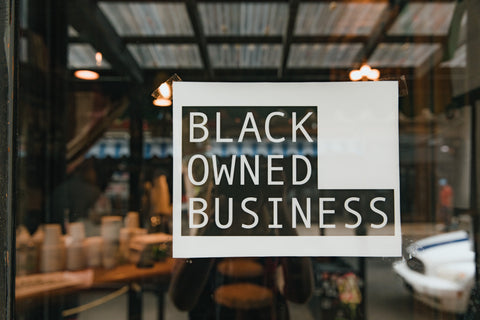
Black Business Month: How Retailers Can Embrace Diversity and Empower Entrepreneurs
Black Business Month is an annual celebration observed in August that honors and supports Black-owned businesses in the United States. It aims to raise awareness about the contributions of Black entrepreneurs to the economy and promote the growth of Black businesses.
It was conceived in 2004 by John William Templeton, an acclaimed journalist and historian who wanted to highlight the achievements of Black business owners throughout history and the significant contributions they have made to the American economy.
Templeton chose the month August because it marked the anniversaries of significant milestones in African American history, such as the founding of the first Black-owned bank, and the March on Washington led by Martin Luther King Jr.
Black Business Month serves as an opportunity to promote economic empowerment within the Black community and foster an inclusive business environment. The month-long celebration also aims to educate the public about the challenges faced by Black business owners and promote the benefits of supporting them.
In recent years, the fashion industry has taken notable strides in acknowledging and supporting Black-owned businesses. Major department stores and retailers, such as Nordstrom and Shopbop for example, have increasingly focused on diversifying their product offerings to include brands owned by Black entrepreneurs. For Nordstrom, it was a key factor in becoming a retail partner of The Folklore Connect.

“Nordstrom has a long history of curating new and emerging brands to offer an ever-evolving and relevant product assortment for our customers. They expect that we deliver a sense of inspiration and discovery with high-quality products from diverse brands,” said Brian Roberts, Vice President of Brand Programs. “Our partnership with The Folklore provides us with additional resources to discover and connect with new-to-Nordstrom brands in support of our ambitions to address marketplace equity.”
Collaborations between established brands and innovative Black talent — see South African designer Thebe Magugu’s ongoing partnership with Adidas — have become more prevalent, too, providing exposure and mentorship to young businesses.
Non-profit organizations have also played a crucial role in advancing the cause of Black businesses in the fashion industry. Initiatives have been launched to provide financial support, business education, and mentorship programs to aspiring Black fashion designers and entrepreneurs. Some of these initiatives include Birimian’s accelerator program dedicated to African emerging brands and the AT&T She’s Connected fund for female women-owned businesses. These efforts not only create a more inclusive marketplace but also contribute to the growth and sustainability of Black-owned fashion enterprises.
Beyond the month of August, fostering a more diverse and equitable fashion industry should remain an ongoing commitment for all stakeholders. Brands and retailers can implement supplier diversity programs to ensure that a wide range of businesses have the opportunity to participate in the supply chain.
Any increase in the American fashion industry’s efforts in supporting Black-owned businesses and demonstrating a commitment to inclusiveness will go a very long way in fostering a more diverse and equitable marketplace.
Images courtesy of T.A. New York, RDNE Stock project/Pexels.com
New to The Folklore Connect? Sign up to shop wholesale or apply to sell as a brand





